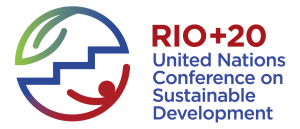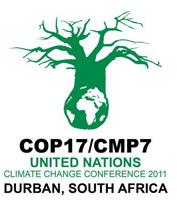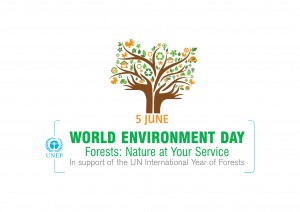

Global Citizenship blog
11am - 12pm, Tuesday 19 June 2012
 What are your green dreams for the future?
What are your green dreams for the future?
What message will you send to world leaders?
How can Scotland become more sustainable?
What can we expect from this globally important event?
Over 150 heads of state and world leaders will gather in Rio de Janeiro from 20-22nd June 2012 for crucial talks at the United Nations Conference on Sustainable Development. Stewart Stevenson MSP, Minister for the Environment and Climate Change, will be one of those travelling to Rio as part of the official UK delegation.
Education Scotland, through Glow, is giving you the chance to link with the Minister live from Rio to learn more about the event and the hopes and expectations of the UK delegation.
The conference, referred to as Rio+20, will mark 20 years since the historic Earth Summit in the same city in 1992 which put issues such as climate change and the protection of biodiversity on the map and gave birth to Agenda 21 – an action plan for a sustainable future which was adopted by national governments, cities and local authorities across the world. Rio+20 will focus on seven priority areas including: decent jobs, energy, sustainable cities, food security and sustainable agriculture, water, oceans and disaster readiness.
Rio+20 provides an opportunity to move away from business-as-usual and to take bold steps to end poverty and address environmental destruction.
This will be an interactive Glow meet so get your questions, messages, ideas and green dreams ready for Rio!
This Glow meet will be suitable for learners in primary and secondary schools.
Visit http://bit.ly/glowrio20 to register and join the Glow meet on the day. Free Rio+20 resources are available at: http://bit.ly/JxZr5G
MoreLatest: Join our Glow meet live from Rio+20 from 11am to 12pm on Tuesday 19th June.  Put your questions to Stewart Stevenson MSP, Minister for the Environment and Climate Change, who will be attending as part of the official UK delegation. Share your green dreams and vision for a better future for all the world’s people.
Put your questions to Stewart Stevenson MSP, Minister for the Environment and Climate Change, who will be attending as part of the official UK delegation. Share your green dreams and vision for a better future for all the world’s people.
Between 20-22 June 2012 world leaders will gather in Rio De Janeiro for crucial talks at the United Nations Conference on Sustainable Development. The conference, referred to as Rio+20, will mark 20 years since the historic Earth Summit in the same city in 1992 which put issues such as climate change and the protection of biodiversity on the map and gave birth to Agenda 21 – an action plan for a sustainable future which was adopted by national governments, cities and local authorities across the world. The establishment of the international Eco-Schools movement was another practical outcome of this process.
The 1992 Earth Summit achieved much but clearly there are still many challenges to be addressed if we are to build a safer, more equitable, cleaner, greener and more prosperous world for all.
The hopes and expectations for Rio+20 are high and the preparations have highlighted seven priority areas including: decent jobs, energy, sustainable cities, food security and sustainable agriculture, water, oceans and disaster readiness. Rio+20 is a chance to move away from business-as-usual and to take bold steps to end poverty and address environmental destruction.
Sustainability in Scotland
The document, A Flourishing Scotland, produced for Rio+20 outlines the many achievements we should celebrate with regards to Scotland’s success in promoting sustainable development education. IN the context of the Rio Summit it may be of interest to note that Chapter 36 of the Agenda 21 document, which focussed on education, was written by a Scot – Professor John Smyth.
However, other key achievements nationally include: the embedding of sustainable development education, global citizenship and outdoor learning within Curriculum for Excellence; we also have one of the most successful Eco-Schools programme in the world with over 98% of local authority school registered; and Scotland has shown leadership on a world stage by introducing ambitious targets on climate change and in planning for our transition to a low-carbon economy. By 2020 it is estimated that 130,000 people will be employed in low carbon and green industries in Scotland and that renewable energy will provide 100% of our energy needs. Scotland is also the only county in the world to have debated the issue of climate justice in its parliament.
Whilst much has been achieved, there is still work to be done. Nevertheless, there is a real opportunity for Scotland to show leadership on a world stage with regards to its commitment to sustainable development and to set an example for other nations to follow.
What you can do
Our ambition is that every learner in Scotland recognises themselves as a global citizen; has a strong commitment to living sustainably and has an enthusiasm for the outdoors and nature.
You can help by ensuring that global citizenship, sustainable development education and outdoor learning are on your school improvement plan and embedded in your curriculum. Make these areas the responsibility of everyone in your school, not just the eco-warrior or group, so your school can adopt a successful whole school approach and make an impact on every learner.
Professional learning – read Learning for Change: Scotland’s Action Plan for the United Nations Decade of Education for Sustainable Development and make use of our resources on sustainable development education, global citizenship and outdoor learning.
Join our online community to share practice and ideas with other practitioners around Scotland and engage in professional dialogue.
Activity ideas
Raise the profile of the conference in your own school or community – organise your own version of the Rio+20 conference.
Invite learners to develop their green dreams – what is their vision of a more sustainable future? What would they like to see happen in the next 20 years? What would their message to world leaders be?
Web links
Official website of the Rio+20 Summit
Twitter – follow the conversation at #Rioplus20
My green dream – add your voice and dream to thousands of others
Education Scotland Online
Sustainable development education pages and videos
Global citizenship resources
Outdoor learning resources
Weather and Climate Change
Exploring Climate Change
Schools Global Footprint
Resources
Keep Scotland Beautiful and the Scottish Sustainable Development Forum have created a Rio+20 resource pack for schools and youth groups. This resource pack can be downloaded from the Eco-Schools Scotland website. Hard copies, plus the accompanying DVD, can be ordered via email: [email protected]
WWF has produced a free Rio+20 teaching resource and associated competition for young people aged 11-14 years. Download for free at: www.wwf.org.uk/futures
Download the special edition Living Planet Report - On the Road to Rio produced by WWF.
Stop Climate Chaos has produced Rio+20 resources for students and teachers. Download from: http://www.stopclimatechaos.org/rc-youth
More As major UN climate talks in Durban, South Africa reach their final day, the most likely outcome is a modest step towards a broader deal to cut greenhouse gas pollution to fight climate change.
As major UN climate talks in Durban, South Africa reach their final day, the most likely outcome is a modest step towards a broader deal to cut greenhouse gas pollution to fight climate change.
Scottish climate campaigner, Lexi Barnett (Campaigns Officer with SCIAF), has been attending the talks with one of Latin America’s leading climate scientist. Check out her blog and the news from the last day.
MoreRecently, two very dynamic maths teachers, Chris Smith and Aimee Strange, together with a group of very talented pupils, delivered a session for practitioners during the ‘Leadership of Global Citizenship’ open day at Grange Academy. “I want to teach maths in a way that makes sense of the world” said Chris Smith. Below are some links and resources from Chris, Aimee and the pupils, providing an insight into the way in which Maths is taught at Grange, embedding global citizenship throughout the curriculum. They are very happy for others to use these materials….
Our presentation
http://prezi.com/rqzk_r-j1kih/global-citizenship
All of the lessons we created and the tools used to deliver them are available on the website below
www.enterprisingmaths.com/citizenship/
Many of these resources were created using Amnesty’s Citizenship book: http://www.amnesty.org.uk/books_details.asp?BookID=10
You can download the pupil presentations here
Chris also writes a weekly newsletter for the department which includes loads of lesson ideas (for example the citizenship lessons will be included) , maths puzzles, useful websites, etc. Here are some sample newsletters:
Maths at Grange Academy issue151pdf
Maths at Grange Academy issue152pdf
More It is estimated that 1.4 billion people still lack access to electricity while almost half of the world’s population - 2.7 billion people - use traditional biomass for cooking and heating. Smoke from polluting and inefficient cooking, lighting, and heating devices kills nearly 2 million people every year, primarily women and children.
It is estimated that 1.4 billion people still lack access to electricity while almost half of the world’s population - 2.7 billion people - use traditional biomass for cooking and heating. Smoke from polluting and inefficient cooking, lighting, and heating devices kills nearly 2 million people every year, primarily women and children.
Against that background, and recognizing that access to affordable modern energy services is essential for sustainable development and the achievement of the Millennium Development Goals, the United Nations General Assembly in December 2010, declared 2012 the International Year of Sustainable Energy for All.
The Year provides an opportunity to raise awareness about the importance of increasing access to energy, energy efficiency, and renewable energy for all. It is also a call to promote action on energy issues at the local, national, regional and international levels towards the internationally agreed development goals.
For information on the UN Observances go to: http://www.un.org/en/events/observances/years.shtml
More The ‘Live Below the Line’ campaign is challenging people in the UK to commit to five days in May of living on less. With a food budget of just one pound per day, participants will have an experience which helps them to understand better the challenges faced by people living in extreme poverty. The campaign will raise funds for charitable use, working with major charities which are active in anti-poverty initiatives in the UK and in developing countries. The website gives information about aims and participation, and explains how the money raised will be used.
The ‘Live Below the Line’ campaign is challenging people in the UK to commit to five days in May of living on less. With a food budget of just one pound per day, participants will have an experience which helps them to understand better the challenges faced by people living in extreme poverty. The campaign will raise funds for charitable use, working with major charities which are active in anti-poverty initiatives in the UK and in developing countries. The website gives information about aims and participation, and explains how the money raised will be used.
Another approach is that adopted by Mary’s Meals, a charity which runs feeding projects in a number of African and European countries, enabling thousands of children to attend school and get an education. A BBC news story provides a recent update, and a Scotsman article reported on the involvement of Scottish singer Annie Lennox.
Schools can encourage discussion and debate about the needs of people in poverty and the ways of adressing those needs, and students learn more about global citizenship through research, discussion and the formation of informed viewpoints.
More World Environment Day (WED) is an annual event that is aimed at being the biggest and most widely celebrated global day for positive environmental action. WED activities take place all year round but climax on 5 June every year, involving everyone from everywhere.
World Environment Day (WED) is an annual event that is aimed at being the biggest and most widely celebrated global day for positive environmental action. WED activities take place all year round but climax on 5 June every year, involving everyone from everywhere.
WED celebration began in 1972 and has grown to become the one of the main vehicles through which the UN stimulates worldwide awareness of the environment and encourages political attention and action.
Through WED, the UN Environment Programme is able to personalise environmental issues and enable everyone to realise not only their responsibility, but also their power to become agents for change in support of sustainable and equitable development. This year there will be a special focus on forests to celbrate 2011 as the International Year of Forests.
WED is also a day for people from all walks of life to come together to ensure a cleaner, greener and brighter outlook for themselves and future generations.
Everyone counts in this initiative and WED relies on you to make this happen – why not organise a neighbourhood clean-up, stop using plastic bags and get your community to do the same, plant a tree or better yet organise a collective tree planting effort, walk to work, start a recycling drive . . . the possibilities are endless.
Visit the World Environment Day website for resources, ideas and information >>
More The Earth Charter is a declaration of fundamental ethical principles for building a just, sustainable and peaceful global society in the 21st century. It seeks to inspire in all people a new sense of global interdependence and shared responsibility for the well-being of the whole human family, the greater community of life, and future generations. It is a vision of hope and a call to action.
The Earth Charter is a declaration of fundamental ethical principles for building a just, sustainable and peaceful global society in the 21st century. It seeks to inspire in all people a new sense of global interdependence and shared responsibility for the well-being of the whole human family, the greater community of life, and future generations. It is a vision of hope and a call to action.
The Earth Charter is centrally concerned with the transition to sustainable ways of living and sustainable human development.
Ecological integrity is one major theme. However, the Earth Charter recognizes that the goals of ecological protection, the eradication of poverty, equitable economic development, respect for human rights, democracy, and peace are interdependent and indivisible.
It provides, therefore, a new, inclusive, integrated ethical framework to guide the transition to a sustainable future.
Find out more from The Earth Charter website.
More
Find us on